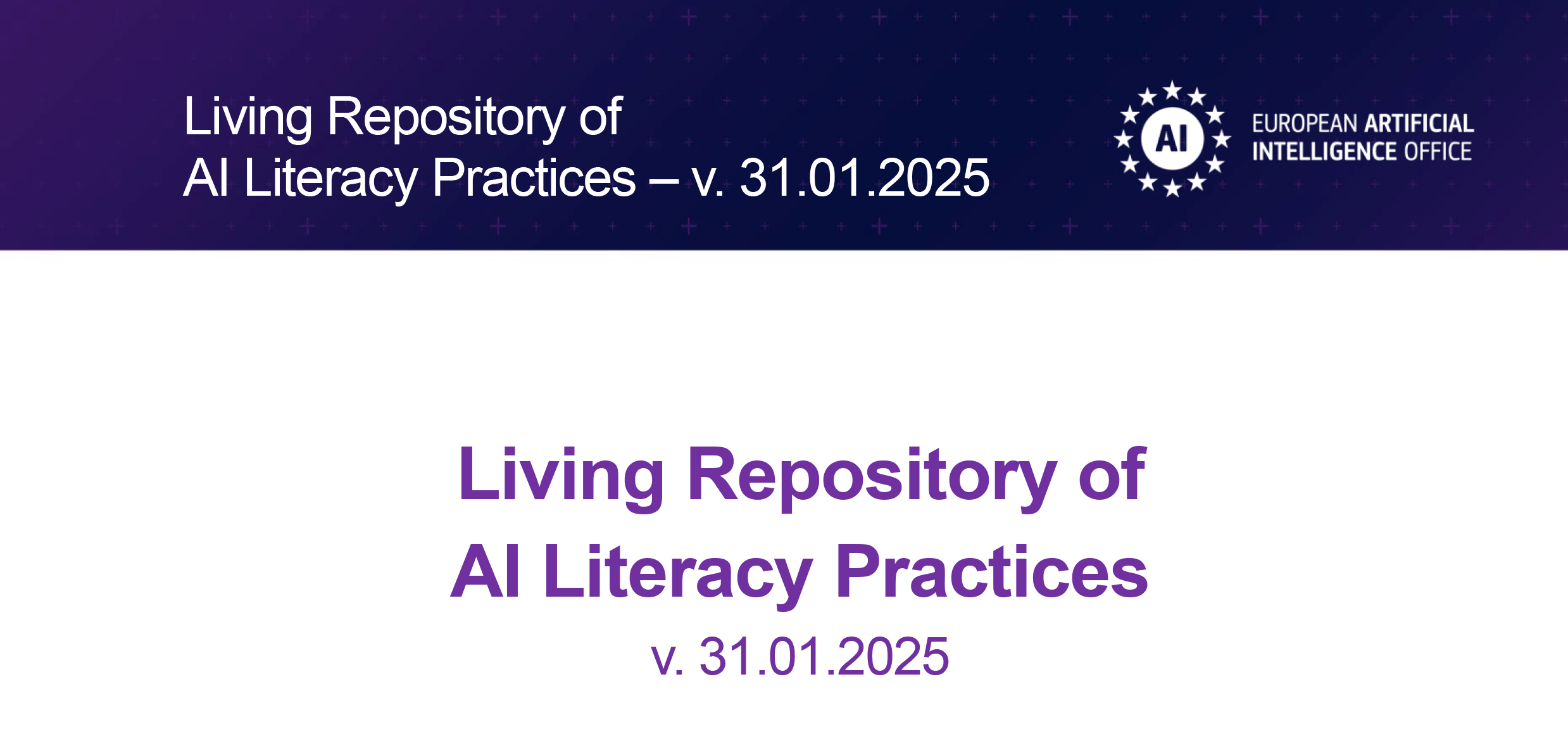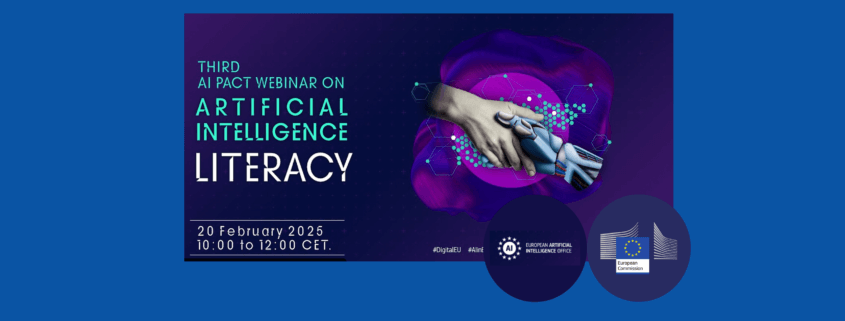AI Regulation Meets Reality: How European Organisations Are Adapting
As of Sunday, February 2, 2025, the first rules under the European Union’s Artificial Intelligence Act (AI Act) have officially been enacted. This marks a significant milestone in the EU’s efforts to regulate AI technologies, ensuring they are used responsibly while fostering innovation.
Key elements now in force include definitions of AI systems, AI literacy requirements, and the prohibition of specific high-risk AI applications.
With these new regulations, managers and leaders across Europe find themselves at the forefront of implementation. Their role is pivotal—not just in compliance but in shaping how AI integrates into workplaces in a way that upholds human dignity and democratic values.

Download the Living Repository of AI Literacy Practices (05.02.25) here [+]
Download here a comprehensive list made by CEC European Managers of all AI Literacy Practices [+]
The European Commission has introduced a living repository of AI literacy practices to support Article 4 of the AI Act. These practices are drawn from AI system providers and deployers, offering a comprehensive view of current educational initiatives to foster AI competency across organisations.
For example, Assicurazioni Generali has implemented a global digital upskilling program with a broad portfolio of AI-related training for all employees, with specialized academies for data scientists and business translators.
Booking.com focuses on non-technical teams, offering tailored AI literacy programs for legal and public affairs staff, incorporating podcasts and interactive content.
Criteo provides voluntary, technical AI training to R&D teams, with sessions led by in-house experts to ensure content relevance. EnBW Energie Baden Württemberg AG employs game-based learning and scenario-driven modules to make AI concepts accessible to a diverse workforce.
In the public sector, INECO integrates AI literacy into its digital transformation efforts, focusing on real-world applications in transportation and civil engineering.
Telefónica takes a broad approach, offering AI literacy not just internally but also to external stakeholders, emphasizing ethical AI use and digital inclusion.
The AI Act sets a regulatory framework, but the real transformation happens at the organisational level, led by informed, ethical, and proactive managers. Through initiatives like CEC’s Working Group on AI and the growing repository of literacy practices, European leaders are well-positioned to harness AI’s potential while safeguarding the values that define their societies.
To learn more about the AI Act, the EU Commission has organised a webinar to tackle the ongoing practices of the AI Pact organisation’s Article 4 of the AI Act.
Article 4 requires providers and deployers of AI systems to ensure a sufficient level of AI literacy, which will enter into application on 2 February 2025. The webinar dedicated to this topic will take place on Thursday 20 February from 10:00 to 12:00 CET.
For CEC European Managers, the message is clear: AI may power the future, but human leadership will guide its course.
Our Managerial Mandate: Ensuring Human-Centric AI
CEC European Managers, as the leading voice for European management since 1951, underscores that AI is not just about technology. It’s about how societies function, how businesses create value, and, critically, how people work.
Managers are tasked with deploying AI and ensuring its application promotes ethical practices, inclusivity, and human oversight.
CEC European Managers‘s advocacy for the “right to a human manager” is particularly significant.
This principle asserts that every worker deserves a human supervisor, reinforcing that AI should assist, not replace, human decision-making.
AI must be supervised and managed by humans, particularly in areas affecting fundamental rights and workplace autonomy.
During these last months, CEC European Managers and its members have been active in the domain of Artificial Intelligence, with the release of a specific position paper on the matter, the participation at several events such as conferences, networking meetings like the Artificial Intelligence and democracy workshop at the European Parliament with MEP Brando Benifei, rapporteur for the AI Act (see article here).
Finally, in alignment with the AI Act’s new mandates, CEC European Managers is relaunching its dedicated Working Group on Digitalisation and Artificial Intelligence.
This initiative aims to support leaders and managers in navigating AI’s complex landscape, offering resources, best practices, and a platform for collaboration.
The group will focus on how digital tools and AI can be better integrated into managerial practices while maintaining ethical standards and enhancing organisational resilience.





